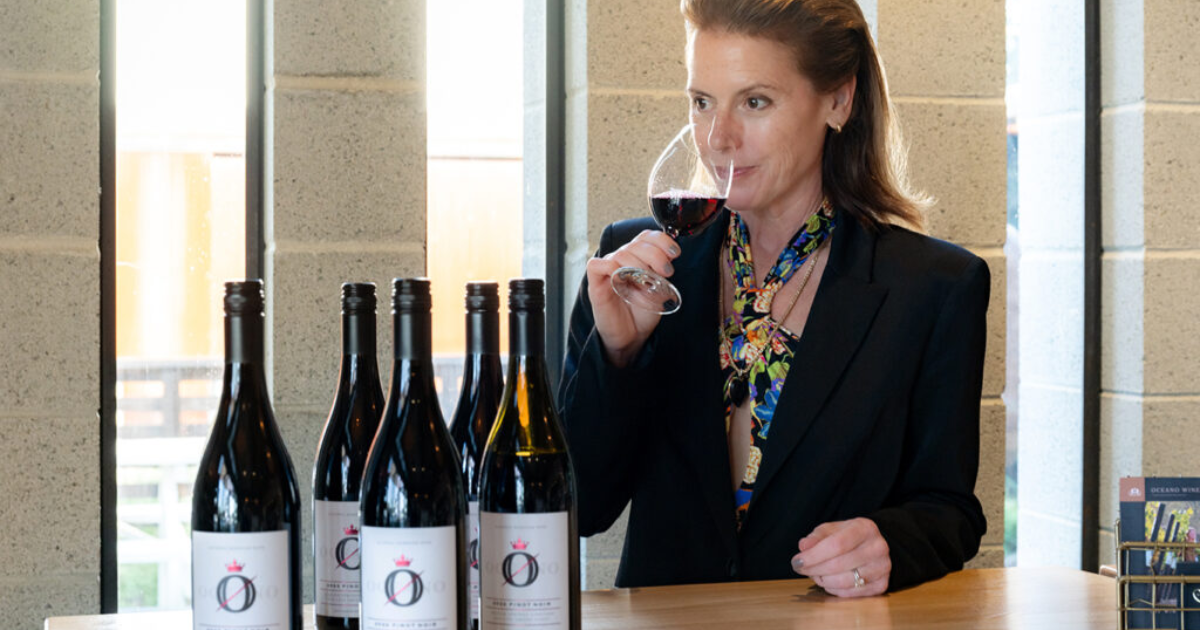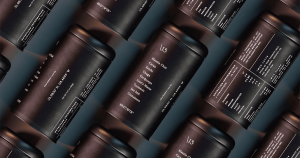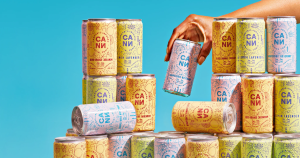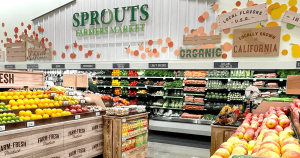Partner Content: Oceano Zero
With over two decades of expertise in crafting fine wines, the decision to venture into the world of non-alcoholic options might seem unexpected. Yet, Rachel Martin of Oceano Zero is doing just that. In this interview, Rachel shares the inspiring genesis behind her foray into the realm of non-alcoholic wine, revealing a convergence of specialized knowledge and entrepreneurial spirit. Her story is one of both tradition and innovation as she pushes the boundaries to create a future in which non-alcoholic wine becomes the preference over its alcoholic counterpart.
With Oceano Zero, Rachel is proving that non-alcoholic wines can be created with the same artistic intention as traditional wines and distinguished by the same factors—climate, geology, geography, viticultural practices, and winemaking decisions. Here, she offers a glimpse into the meticulous craftsmanship behind Oceano Zero, where each bottle embodies not just an alcohol alternative but a commitment to sustainability and the joy of exploration.
Dry Atlas: You’ve been making wine and growing grapes for over 20 years. Given your success in traditional wine, what inspired you to launch a non-alcoholic wine brand?
Rachel Martin: Grape growing is part of my soul. I look at everything through that lens.
I started to seriously explore non-alcoholic wine when I was enrolled in an entrepreneurship program, Goldman Sachs 10,000 Small Businesses. I was tasked with identifying a growth opportunity for my wine business, Oceano. A real one, one that scares you, one that gives you butterflies when you think about it. That same feeling when I founded Oceano itself—something that big.
The only true path forward that scared the crap out of me was non-alcoholic wine. So I wrote a business plan to launch Oceano Zero as a brand within my company and kickstarted my research. I lived near [non-alcoholic retailer] Boisson on the Upper West Side. I thought to myself, “This is so attainable for me to do the market research work.” I sampled everything on the shelves. I got to speak to the retail salespeople and store customers. I asked all the questions you would ask: what do people look for, what are their pain points, what don’t they like. It was an awesome learning experience.
Then, of course, I dove into how the alcohol is removed. I’d been in the wine business, so I understood certain processes of bringing alcohol levels down. But I wanted to understand who did it best within the non-alc category. What I noticed really excited me: I didn’t see the vineyard approach and I didn’t see the vintage approach. I can taste something and know how it’s made and what is the source. That’s what excites me about wine. And I believe that’s what excites wine lovers about wine. I wanted to bring that to the non-alc space.
DA: Was that the lightbulb moment for you?
RM: Yes, but I was a little discouraged at first. “What am I doing here?” I thought to myself. “I don’t belong here. I’m a fine wine producer.” Then I realized: this was my opportunity. This was perfect for me. It wasn’t just an opportunity for my business. It was an opportunity to enhance the customer’s experience with non-alcoholic wine. A huge part of the consumer base wasn’t being considered when it came to non-alcoholic wine.
I graduated from the Goldman Sachs program and was ready to get started. I got [Founder of Boisson] Nick Bodkins on the phone and I was like, “Hi, this is me, this is what I’m thinking of doing. Is this crazy, to launch one of the highest-priced non-alcoholic wines in the market?” He said that there was a market for it. That really inspired me.
Then Dry January came along. I decided to try it, to try really being my customer. It blew my mind. It seems super basic, but everything improved for me when I stopped drinking. I still drink from time to time, and there’s a place for it in my life. But I am beyond overjoyed with removing alcohol from my daily life. That reinforced my belief in what I was doing with Oceano Zero
DA: How did you go about bringing Oceano Zero to life? Can you share a bit about translating your traditional wine experience to the non-alc space?
RM: As a grape grower and wine producer, I came to it with this specialized knowledge and an incredible vineyard to source from: Spanish Springs in San Luis Obispo. It’s one of the most unique vineyards I’ve ever been to, and that’s saying a lot. So my wines taste like the terroir in which they’re grown. That’s success, if your wine has a sense of place.
Our vineyard sits on an ancient seabed. It’s limestone, marine shale. What does that add to the wine? Salinity, acidity. Then you have the proximity to the ocean. You’ve got all the coastal fog that comes in. That ocean is bound within the fog and sits on top of the grapes, and it imbues that into the fruit. These little things show in the wine, and that’s why wine’s amazing. Then, of course, the vintage reveals a lot. What was the weather like that year? When was bud break? When was the harvest? What was the yield like? What were the berry sizes like? This is what makes wine the greatest alcoholic beverage on the planet. This is also what informs Oceano Zero.
Now, I’m harvesting for non-alcoholic wine. There are certain things I look for as far as grape maturity, specifically for non-alcoholic wine. I have a barrel aging program specifically for non-alcoholic wine, and it’s not the same as for my traditional wine. But it’s not easier, it’s harder. Still, I’m transitioning to a fully non-alcoholic company.
DA: That’s so exciting. Are you defining these methods as you go, or is there any kind of playbook today for non-alcoholic wine?
RM: With wine—with alcohol and even more so without—you improve every year. This is why it’s fun. Every year you learn something. And, no matter how many years you’ve made wine, there’s a way to improve.
That’s what I’ve always done with Oceano, and now with Oceano Zero. It’s given me this burst of energy and excitement because I’d venture to say it’s even more creative than traditional wines. There are more opportunities to innovate and to improve. We’re innovating regarding grape varietal selection, our winemaking program, and more. With alcohol removal, there’s another chance for innovation there. We’re innovating all the way up to the bottling. It’s that spirit of curiosity that I love. I’m always learning and coming up with solutions.
DA: As you think about your consumer base, how do you view the younger generations who tend to drink less alcohol? Are you bullish on their interest in non-alcoholic wine?
RM: I’m a Gen X. When I was growing up, alcohol was this super cool thing. I thought, “I can’t wait until I’m an adult and can drink and be cool and smoke cigarettes.” Gen Z is quite different. I just think they’re the coolest. They care about a lot of things. They care about what’s behind the brand, they care about sourcing, they care about the planet.
All our wines and processes are sustainable: organic practices, proper treatment of our people, sustainable packaging. Our glass is made up of 75% recycled glass. It’s the lightest weight bottle you can find on the market. Our screw caps are 100% recyclable. When Gen Z wants to explore more artisanal products and maybe ditch the added flavors—because we don’t do any added flavors—they’re going to come to non-alcoholic wine for those reasons. They want to feel connected. There’s authenticity, there’s autonomy, there are all these things wrapped up into wanting to have a sophisticated beverage made from the land that doesn’t harm your body or your mind.
DA: Looking ahead, do you think that we can truly maintain everything we love about wine traditions as we go more non-alcoholic?
RM: I’m going to say the bold statement: people will eventually choose non-alcoholic wines over wines with alcohol. Because alcohol makes you tired, alcohol changes your personality, and alcohol is a downer. Non-alcoholic wine is going to be the preference over time, which is pretty wild.
The tradition is wine, but it’s not specifically alcohol. As humans progress, there’s no reason why there can’t be a natural evolution toward non-alcoholic wine.
Oceano Zero is an ultra-premium alcohol-removed wine brand that features single-vineyard, single-vintage luxury wines sourced from the sustainably-certified Spanish Springs Vineyard along the San Luis Obispo Coast. They recently launched their 2023 Chardonnay.






